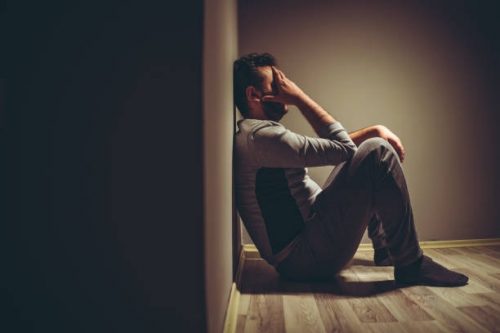Extreme eating disordered behavior includes excessive calorie counting, secret food binges, strict diets, and vomiting after meals. Seeing someone you love and care about suffer from this health problem is difficult, especially when there seems to be an obvious remedy. However, eating disorders are far more complicated than bad eating patterns. They are fundamentally unsuccessful attempts to cope with emotional problems that involve skewed, negative perspectives on eating habits, weight, and body image. These unpleasant emotions and beliefs fuel these harmful habits.

Source: pixabay.com
Eating disorders are caused by the use of food as a coping mechanism for unpleasant or painful feelings. That is because limiting one’s diet helps one feel in charge. Overindulging momentarily calms feelings of anxiety, stress, rage, or depression. It is a strategy for overcoming hopelessness and self-loathing, as described by most people with mental illness. Those who suffer from disordered eating eventually lose the ability to view themselves clearly, and their preoccupation with food and weight stigma starts to take over all other aspects of their lives. Finding healthy coping mechanisms for frustration or emotional distress and determining the underlying causes of the eating disorder they are experiencing are the first steps on their journey toward wellness and recovery.
Persons of various ages, genders, races, body size, and weights can develop eating problems. Different kinds of eating disorders have different mental, physical, and emotional symptoms. Treatment options may include medication, mental health counseling, and cognitive therapies. But note that you may support and promote the importance of therapy for someone who is struggling with an eating disorder, but you cannot make them change. And that can significantly impact how quickly your loved one or the person you know recovers.
Warning Signs Of An Eating Disorder
Many individuals are concerned about their physical appearance, diet, and positive body image. This is particularly true for young adults and teenagers, who are under additional pressure to look good and fit in during a period when their physical attributes are developing. Because of this, it can be difficult to distinguish eating disorders from other types of normal self-consciousness problems, weight issues, or diets. Individuals who suffer from eating disorders frequently go to considerable measures to conceal what’s going on, which further complicates challenges. You can look out for some warning indications, though. Furthermore, warning signs for eating disorders become more obvious as they worsen. Here are some of the things to look out for.
Restricting Food Or Dieting
Creating excuses to dodge meals or food-related circumstances (such as saying they’re not hungry, had a large meal earlier, or have a cranky stomach) is one example of this practice. Some people compulsively monitor their calorie intake, read food labels, measure amounts, and eat only small amounts of particular low-calorie foods. They also frequently avoid entire groups of foods, such as carbohydrates and dietary fat. They also try consuming prescription stimulants or illegal substances like amphetamines or diet pills, along with creating restricted eating habits such as chewing or chopping excessively, eating in specific orders, or rearrangement of food on a plate.

Source: pixabay.com
Bingeing
This is an event where individuals with eating disorders store significant amounts of food in relatively brief periods and hoard and conceal stashes of high-calorie snacks like junk food and sweets. In addition, they frequently have a lot of empty food packets and wrappers, which often get tucked at the bottom of the garbage or even under their bed or closet. In some cases, they may eat normally among other people but then binge late in the evening or in a quiet place where they won’t be seen or disturbed.
Having Distorted Body Image And Altered Appearance
What generally concerns these people with eating disorders are frequent remarks about feeling overweight or being called fat. They have this fear of about that they may acquire weight. Thus, in common scenarios, they frequently wear baggy or several layers of clothing to conceal their weight and occasionally struggle with significant weight loss, quick weight gain, or fluctuating weight.
Purging
This is a situation where individuals with eating disorders conduct lengthy periods of fasting or obsessive, intensive exercise, particularly right after eating their meal. This can occasionally involve behaviors such as disappearing immediately after eating, constantly using laxatives, diuretics, or enemas, or making numerous trips to the restroom. Individuals will sometimes overdo their mouthwash and take excessive amounts of breath mints or perfume to cover up the stench of puke.
Types Of Eating Disorders
Anorexia
People with anorexia starve themselves because they have a severe fear of gaining additional weight. They never think they’re skinny enough, even though they’re literally underweight or even malnourished. Aside from caloric restriction, people with anorexia nervosa may use diet medications, go on an extreme or excessive exercise routine, or purge to maintain their ideal weight.
Bulimia
Bingeing and purging are vicious cycles associated with Bulimia. People living with Bulimia go to great lengths to rid themselves of the excess calories after an uncontrollable binge eating session. They fast, throw up, exercise excessively, or use laxatives to prevent gaining weight. Usually this practice often results in severe malnutrition and mineral deficiencies.
Binge Eating Disorder
Individuals who suffer from binge eating disorder tend to overindulge in food, quickly ingesting thousands of calories in just a short period of time. They cannot regulate their behavior or quit eating even when feeling uncomfortably full. They often don’t want to stop munching food despite angry emotions of remorse and shame over these covert binges.
How To Communicate Effectively With A Person With An Eating Disorder?
Keep Trying To Include Them
Even though people with eating disorders might not want to go out or participate in events, you should nonetheless approach them and invite them along. They will appreciate being invited, even if they choose not to attend. It will give them a sense of personal worth. Don’t even consider the possibility that they don’t want to be around others and avoid friends and families or close relationships because they don’t socialize as much as you believe they should. They never prioritize isolating themselves, so you should never think they will immediately cut you off. Please pay attention to their behavior and emotions. Don’t let it control you.
Try To Build Up Their Self-Esteem
Telling someone who suffers from an eating disorder how wonderful they are, how much you value their presence in your life, and that you’re delighted to be around them could be one of the ways you could support them. You must express your willingness to encourage them in any circumstance and your preference for highlighting their positive traits over their self-defeating beliefs. You need to inform them that their eating condition is unrelated to their personality, believe their physical state has no bearing on who they are, and that their inner traits are more valuable than their health.

Source: pixabay.com
Give Your Time, Have A Listening Ear, And Try Not To Give Advice Or Criticize
This might be difficult if you disagree with their self-perception, self compassion, and food choices. Remember that you don’t need to hold every solution. The key thing is to make sure that people with eating disorders know you support them even if when you feel that your supportive friend or relative declines your friendship, assistance, and advice. Honestly, because the person managing the mental health problem would probably block you out, you will feel a lot of stress and anxiety. Sometimes, they may even deliberately hurt you to convince you to abandon them. Because of this, it’s critical that you maintain your composure and resist their attempts to make you feel bad for supporting them.
Talk To Them, But Never Tell Them What They Should Do
A person with an eating disorder is often sensitive to comments and suggestions regarding their looks, the food they eat, and how they handle themselves. Sometimes, they take it personally and would retaliate without understanding their situation. Since they are not typically mentally and emotionally stable, they would only see your advice as entirely against their ideals, and often they would not feel safe. With that, you must be careful with what you say because offending them is the last thing you should do. That is because instead of helping them, you might push them to their limits. Understandably, there are times that you might unintentionally say something that would make them feel off. But if you can, try avoiding telling them what to do because these mentally unstable individuals already know the condition they are in, and they don’t need you to constantly remind them that they are dealing with a psychological problem.
Don’t Use Your Experience As An Example
One misconception about trying to help a family member or someone with an eating disorder is when you talk to them; you use your own awareness and experience to make them realize that their situation or condition is not much of a concern. Genuinely, your experiences differ from theirs, and the battle they are facing will not put yours above theirs. Yes, communicating or talking to them and sharing your experience about your issues may be a way for you to relate. But when you do that, you only make them feel like their problems are nothing but a portion of your non-existent sufferings. It would be best to let them feel comfortable sharing their struggles and thoughts instead of grabbing the attention of yourself.
Final Thoughts
A person’s physical and mental health may be negatively impacted by eating disorders, which are a severe issue. Do not hesitate to assist if you believe you may know someone who suffers from an eating disorder. A person’s physical health can be negatively impacted and potentially lead to challenging life-threatening issues after years of dealing with an ignored eating disorder. Start by conversing with the person and getting guidance from a qualified healthcare specialist to safeguard their well-being.





























